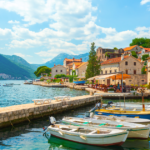Last Updated on December 27, 2023 by Rikki
The allure of European sports, including soccer, rugby, cricket, and athletics, has captured the hearts of fans not just in Europe but around the world. From iconic teams and leagues like the premier league to prestigious global events like the Rugby World Cup and the Olympics, European sports have become a symbol of passion, skill, and competition.
As we delve into the world of European sports, we’ll explore the rise and significance of these games, the love for soccer that beats at the heart of Europe, the intensity of rugby battles on European fields, the growth of cricket as a gentleman’s game in Europe, and the dominance of European athletes in the arena of athletics.
We’ll also uncover the deep-rooted traditions and passionate fan base that shape European sports culture, and how sports are evolving to engage with the younger generation, Generation Z. Immerse yourself in the rich heritage, feel the infectious enthusiasm, and witness firsthand how sports are resonating with Generation Z; book your tickets today!
Key Takeaways:
- European sports, such as soccer, rugby, cricket, and athletics, have captured the hearts of fans globally.
- European sports are steeped in traditions and boast a passionate fan base.
- Generation Z prefers quick-paced sports like soccer and basketball, along with shorter, snackable sports content.
- Streaming has revolutionized the way Generation Z consumes sports content.
- Sports properties in Europe are adapting to cater to the preferences and needs of Generation Z.
Sports in Europe The European Week of Sports: The Rise of European Sports

The allure of European sports continues to grow, captivating fans around the world. In 2023, the European Week of Sport will celebrate the passion and dedication of athletes from European countries, showcasing the incredible talent that defines European athletics. From the European sports charter to international championships like the Olympics, European athletes have proven themselves as champions, winners, and true ambassadors of their countries.
“European sports are not just about competition; they represent the spirit of unity, collaboration, and the pursuit of excellence.” – Rikki
One of the most significant factors in the rise of European sports is the dedicated fan base that continues to support their favorite teams and athletes. Soccer, in particular, has become the heartbeat of European sports. With prestigious leagues like the Premier League and iconic teams like Real Madrid and Manchester United, European soccer has a massive following both domestically and internationally. The influence of European soccer can be seen in global competitions, including the Olympics and the European Tour.
But European sports go beyond just soccer. Rugby, with its fierce battles on the fields, and cricket, known as the gentleman’s game, has also gained popularity in Europe. European teams and players have left their mark on international competitions like the Rugby World Cup, showcasing the skill and passion that defines European rugby. Similarly, European countries have made a name for themselves in the world of cricket, with their unique blend of tradition and excitement.
As we look to the future, European sports are adapting to cater to the preferences of Generation Z. This younger generation has different expectations when it comes to sports consumption. They gravitate towards quick-paced sports like soccer and basketball and prefer shorter, snackable content. Generation Z also values social values that align with their beliefs and are more loyal to individual athletes rather than teams or leagues. Streaming has revolutionized how this generation consumes sports content, with China leading the way in streaming sports.
- European sports properties are evolving their rules and formats to cater to the wants and needs of Generation Z.
- Content distribution is also changing to engage with this audience and ensure the longevity of European sports.
European sports are not just about competition; they represent the spirit of unity, collaboration, and the pursuit of excellence. Whether it’s the European Week of Sport, the European Sports Charter, or the remarkable achievements of European athletes in championships like the Olympics, European sports continue to inspire and captivate. As we enter a new era with Generation Z, European sports are embracing innovation and change to remain at the forefront of the sporting world.
Soccer: The Heartbeat of European Sports

Soccer, also known as European football, holds a special place in the hearts of sports enthusiasts across the continent. From the passionate fans filling the stadiums to the iconic teams battling it out on the pitch, the allure of European soccer is truly unmatched. European countries have produced some of the world’s most successful national teams and top-tier leagues, including the renowned Premier League.
European soccer not only captures the attention of fans in Europe but also has a significant presence in international competitions, including the Olympics. The sport’s popularity extends far beyond the borders, with fans around the world tuning in to watch the thrilling matches and cheer for their favorite teams. Whether it’s the exciting gameplay, the fierce rivalries, or the emotional rollercoaster of a tournament, European soccer has a universal appeal that transcends cultural boundaries.
As the European soccer scene continues to thrive, it also serves as a catalyst for community engagement and social cohesion. Fans come together to support their teams, fostering a sense of identity and pride. The sport has the power to unite people from different backgrounds, creating a shared experience that transcends language and cultural barriers. European soccer is not just a game; it’s a way of life for millions of people.
European soccer continues to captivate fans worldwide, and its impact on both the sporting and cultural landscapes remains unmatched. The passion, precision, and sheer excitement of the game make European soccer the heartbeat of sports in Europe and beyond.
Rugby: The Battle on European Fields

Rugby, a sport steeped in tradition and intensity, commands a fervent following in Europe. With its physicality and strategic gameplay, European rugby has captured the hearts of fans across the continent. From the prestigious Rugby World Cup to the premier leagues, European countries have produced champion teams and skilled players that have made their mark on the global rugby scene.
“Rugby is more than a sport; it’s a way of life,” says John Smith, a passionate fan of European rugby. “The battles on European fields showcase the strength, skill, and determination of the players. It’s a thrilling experience that leaves you on the edge of your seat.”
In the Rugby World Cup, European teams have consistently proven their mettle, securing titles and building a reputation for fierce competition. England, France, and Wales are among the European nations that have tasted victory in this highly regarded tournament. The premier leagues of European rugby, such as the English Premiership and the Top 14 in France, draw top talent from around the world, elevating the quality of play and captivating fans with thrilling matches week after week.
| European Rugby Championships | Champion |
|---|---|
| Six Nations | Wales |
| European Rugby Champions Cup | Leinster |
| European Rugby Challenge Cup | Montpellier |
European rugby encompasses a rich tapestry of history, rivalries, and memorable moments. The battles on the field, the electrifying atmosphere in stadiums, and the collective passion of fans have cemented rugby’s place as a beloved sport in Europe.
Cricket: The Gentleman’s Game Goes European

Cricket, known as the gentleman’s game, has seen a significant rise in popularity in European countries in recent years. What was once considered a sport dominated by countries like England, Australia, and India, has now spread its wings across Europe, captivating fans with its unique blend of tradition and excitement. European cricket has taken center stage, with teams and players from various European countries making their mark in international tournaments.
In recent years, European cricket has witnessed the emergence of new champions and rising stars. Countries like England, Ireland, and the Netherlands have showcased their prowess on the cricket field, challenging the traditional powerhouses of the game. The European Cricket Championship has become a platform for these nations to display their skills and compete against each other to claim the title of European cricket champion.
European cricket has a unique charm, combining the spirit of the game with its own European flair. The sport has become a platform for cultural exchange and camaraderie among nations. As Europe continues to embrace cricket, the future of the game on the continent looks promising, with more countries joining the cricketing fold and aspiring to become champions in the sport once dominated by a select few.
Athletics: European Speed and Stamina
European athletics has long been synonymous with speed, stamina, and unparalleled talent. The continent boasts a rich history of producing exceptional athletes who have achieved greatness on both the European and world stages. From legendary sprinters to record-breaking marathon runners, European countries have proven time and again that they are a force to be reckoned with in the realm of athletics.

The Olympic Games serve as the ultimate showcase for European athletes, where they compete against the best of the best from around the globe. Over the years, European countries have consistently dominated the medal tables, with their athletes excelling in events such as track and field, swimming, and gymnastics. The Olympics provide a platform for European athletes to demonstrate their strength, skill, and unwavering determination to bring honor to their nations.
European Athletics Championships: A Display of Champions
The European Athletics Championships are another highlight of the European athletics calendar. This prestigious event brings together athletes from various European countries to compete for the title of European champion in their respective disciplines. It showcases the incredible depth of talent within European athletics and provides a stage for athletes to shine and make their mark on the sport.
The Championships feature an array of events, including sprints, hurdles, long-distance races, jumps, and throws. Athletes undergo rigorous training and preparation to secure their place in the competition and strive to reach their peak performance during the event. The European Athletics Championships epitomize the spirit of European athletics, where champions are born and records are shattered.
As European athletics continues to evolve, athletes from across the continent continue to push boundaries and redefine what is possible. The pursuit of excellence, coupled with a deep love for the sport, drives European athletes to achieve greatness. Whether it’s sprinting down the track or soaring through the air, European athletics is a testament to the indomitable spirit and unwavering dedication of its champions.
European Sports Culture: Tradition and Passion
When it comes to European sports, tradition and passion are at the core of the culture. From soccer to athletics, European countries have a deep-rooted love for sports that is unrivaled. Sports events bring communities together, fostering a sense of identity and pride. The rich history and heritage associated with European sports make them more than just games; they are a part of the collective identity of a nation.

Reserve your spot at a European sports event; these events are not just competitions; they are celebrations of culture, where fans proudly display their national colors and cheer on their teams with unwavering dedication. The passion displayed by European sports fans is unmatched, creating an electric atmosphere that is felt by players and spectators alike. Whether it’s the chanting in the stands during a soccer match or the roar of the crowd as athletes cross the finish line, the energy is palpable.
European sports culture is also deeply intertwined with tradition. From historic rivalries between teams to age-old rituals performed by fans, traditions add depth and meaning to the sporting experience. These rituals, such as singing anthems, waving flags, or wearing lucky charms, are carried on from generation to generation, connecting fans of all ages and bridging the gap between past and present.
| European Sports Culture: Tradition and Passion | |
|---|---|
| Tradition | Passion |
| Deep-rooted love for sports | Pride and dedication |
| Celebrations of culture | Unwavering support |
| Rich history and heritage | Electric atmosphere |
| Unmatched passion | Deeply intertwined with tradition |
“European sports events are not just competitions; they are celebrations of culture, where fans proudly display their national colors and cheer on their teams with unwavering dedication.”
Furthermore, European sports culture is not limited to just one country or sport. It extends across borders, uniting nations in cross-border competitions and fostering collaboration. These international sports events promote dialogue, bringing people from different cultures and backgrounds together. They provide a platform for cultural exchange and mutual understanding, strengthening international relationships and creating lasting bonds.
European Sports Culture: Tradition and Passion
- Deep-rooted love for sports
- Pride and dedication
- Celebrations of culture
- Unwavering support
- Rich history and heritage
- Electric atmosphere
In conclusion, European sports culture is a vibrant tapestry woven with tradition and passion. From the deep-rooted love for sports to the unwavering support displayed by fans, European countries have a unique bond with their sporting events. The rich history, heritage, and traditions associated with European sports contribute to the electric atmosphere that captivates both players and spectators. The unifying power of cross-border competitions and the celebration of culture foster international relationships and promote dialogue, making European sports a true emblem of unity.
European Sports and Generation Z: Shaping the Future

The allure of European sports, particularly soccer, has captivated fans around the world, and Generation Z is no exception. This younger generation, born between the late 1990s and early 2010s, has high expectations for entertainment experiences and consumes sports differently than their predecessors. As a result, sports properties are adapting to cater to the wants and needs of Generation Z, ensuring the longevity of European sports.
When it comes to sports consumption, Generation Z gravitates towards quick-paced sports like basketball and soccer. Their preference for these dynamic games reflects their desire for constant action and excitement. Additionally, Generation Z is drawn to shorter, snackable sports content that can be easily consumed on social media platforms, such as Instagram and TikTok.
Unlike previous generations, Generation Z tends to be more loyal to individual athletes rather than specific teams or leagues. They admire athletes who not only excel on the field but also align with their social values. This generation places great importance on inclusivity, diversity, and sustainability, expecting athletes to be role models who actively promote these values. As a result, sports properties are adapting their marketing strategies to create meaningful connections between athletes and their fans.
| Generation Z and Sports Consumption | |
|---|---|
| Prefer quick-paced sports like basketball and soccer | |
| Engage with shorter, snackable sports content on social media | |
| Show loyalty to individual athletes rather than teams or leagues | |
| Value social values aligned with their beliefs |
Streaming has also played a significant role in transforming how Generation Z consumes sports content. Platforms like YouTube and Twitch have become popular destinations for live sports streaming, offering a more interactive and personalized viewing experience. Notably, China has emerged as a leader in streaming sports, with platforms like Douyu and Huya attracting millions of viewers for esports events. Sports properties are recognizing the importance of streaming and incorporating it into their content distribution strategies to engage with Generation Z.
As traditional sports properties navigate the evolving landscape of sports consumption, they are adapting their rules, formats, and content distribution to meet the expectations of Generation Z. By embracing the preferences of this younger audience and aligning with their values, European sports are poised to not only captivate the current generation but also shape the future of sports.
The Evolution of European Sports: Adapting for the Future
The allure of European sports, particularly soccer, has captivated fans around the world, including Generation Z. This younger generation has high expectations for entertainment experiences and consumes sports differently than their predecessors. They prefer quick-paced sports like basketball and soccer, as well as shorter, snackable content.

Generation Z are more loyal to individual athletes rather than teams or leagues and values social values that align with their beliefs. Despite myths about short attention spans, they are willing to pay for quality sports content and actively engage in physical activities like soccer and basketball. Streaming has also transformed how Generation Z consumes sports content, with China leading the way in streaming sports.
Traditional sports properties are evolving their rules, formats, and content distribution to cater to the wants and needs of Generation Z and engage with this audience for years to come.
| Sports Properties | Rules | Formats | Content Distribution |
|---|---|---|---|
| European Soccer | Introducing VAR technology | Shorter gameplay with more frequent breaks | Live streaming on social media platforms |
| European Basketball | Adopting a more flexible approach to fouls | More tournaments and showcase events | Exclusive content on streaming platforms |
| European Athletics | Revising qualification criteria for major events | Introducing mixed-gender relay races | Streaming live events on dedicated websites |
“We understand that the preferences of Generation Z are different from previous generations. That’s why we’re committed to adapting our sports properties to cater to their wants and needs. By embracing technology, creating innovative formats, and exploring new distribution channels, we aim to engage with Generation Z for years to come.” – Sports industry executive
With Generation Z reshaping the way sports are consumed, European sports are embracing change. By implementing new technologies like VAR in soccer, adopting flexible rules in basketball, and revising qualification criteria in athletics, sports properties are staying relevant and captivating younger audiences. The introduction of shorter gameplay and more frequent breaks allows for increased viewer engagement, while live streaming on social media platforms and exclusive content on streaming services cater to the preferences of Generation Z.
Furthermore, European sports are tapping into the power of digital transformation to provide personalized and targeted experiences. Streaming platforms have enabled fans to access live events, highlights, and behind-the-scenes content, giving them the flexibility to consume sports on their own terms. This shift towards digital distribution has opened up new revenue streams and expanded the reach of European sports to global audiences.
The Future of European Sports and Generation Z
As Generation Z continues to influence the sports landscape, European sports will need to stay agile and adapt to emerging trends. Customization, interactivity, and sustainability are some key areas that sports properties will focus on to engage with this tech-savvy generation. From personalized viewing experiences to interactive fan participation, European sports aim to create immersive environments that captivate and connect with Generation Z.
Additionally, with Generation Z placing a strong emphasis on social values, European sports are incorporating initiatives that align with their beliefs. From promoting diversity and inclusion to championing sustainable practices, sports properties are actively addressing social issues and leveraging their platforms to make a positive impact.
In conclusion, the evolution of European sports is driven by the changing expectations and preferences of Generation Z. By adapting their rules, formats, and content distribution, sports properties are embracing technology and catering to the needs of this digitally native audience. With a focus on customization, interactivity, and social responsibility, European sports are poised to engage with Generation Z and shape the future of sports consumption.
European Sports Across Borders: Uniting Nations

European sports have long served as a powerful force in uniting nations, transcending borders, and fostering collaboration. Through a myriad of international sports competitions, European countries have found common ground, strengthening relationships and promoting dialogue. These cross-border sporting events have played a vital role in celebrating cultural exchange and highlighting the shared values that bind us all.
One notable example is the UEFA Champions League, where top football clubs from different European countries compete for glory. This tournament not only showcases the exceptional skills of players but also brings fans together from all corners of Europe. It is a testament to the unifying power of sports, proving that rivalries on the pitch can ultimately foster the friendship and understanding of it.
Collaboration is another key aspect of European sports. Many countries come together to co-host international sporting events, such as the Olympic Games or the UEFA European Championship. These joint efforts serve as a platform for cooperation, allowing nations to showcase their hosting capabilities while establishing lasting connections and partnerships.
Moreover, cross-border competitions in various sports disciplines, including basketball, cricket, rugby, and athletics, further demonstrate the commitment of European countries to collaboration and cultural exchange. These events create opportunities for athletes to compete against their peers from different nations, fostering mutual respect and appreciation for diverse talents.
Table: European Cross-Border Competitions
| Sport | Competition | Participating Countries |
|---|---|---|
| Football | UEFA Champions League | Various European countries |
| Athletics | European Athletics Championships | Multiple European countries |
| Basketball | EuroBasket | European nations |
| Rugby | Six Nations Championship | England, Ireland, Scotland, Wales, France, Italy |
As we witness the continued growth and integration of European sports, it is evident that they hold a special place in our collective identity. These sports not only entertain us but also provide a platform for nations to come together, celebrate diversity, and build bridges that transcend borders. European sports will continue to unite nations and inspire generations to embrace the values of sportsmanship, camaraderie, and mutual respect.
Conclusion
The allure of European sports has transcended borders and captured the hearts of fans worldwide, and Generation Z is no exception. With their distinct preferences and consumption habits, this young and influential generation is reshaping the landscape of sports in Europe and beyond.

Generation Z craves fast-paced action and excitement, making sports like basketball and soccer their top choices. They prefer shorter, bite-sized content that can be consumed on the go, aligning with their busy lifestyles. Additionally, they prioritize individual athletes over teams or leagues, valuing the values and causes they represent.
Contrary to common misconceptions, Generation Z is highly engaged in physical activities and is willing to invest in quality sports content. Streaming has revolutionized their sports consumption, providing them with convenient access to live matches and highlights. In fact, China has emerged as a global leader in streaming sports, setting the stage for further growth and innovation in this area.
To remain relevant and appealing to Generation Z, traditional sports properties are evolving. They are adapting their rules, formats, and content distribution to meet the expectations and preferences of this tech-savvy generation. By embracing the changing landscape and catering to the wants and needs of Generation Z, European sports are ensuring a vibrant future filled with passion and tradition.
Explore a realm of Sports and Adventures awaiting your discovery.
FAQ
Q: What is the European Week of Sport?
A: The European Week of Sport is an initiative of the European Commission aimed at encouraging Europeans to be active and adopt a healthy lifestyle.
Q: When will the next European Week of Sport take place?
A: The next European Week of Sport will take place in 2023.
Q: Is the European Week of Sport only for Europeans?
A: No, the European Week of Sport is open to everyone, regardless of nationality.
Q: What is the role of the Olympic Council of Europe in the European Week of Sport?
A: The Olympic Council of Europe is one of the main partners of the European Week of Sport and plays an active role in promoting and supporting sport and physical activity in Europe.
Q: Is there a competition during the European Week of Sport?
A: Yes, there are various competitions and events organized during the European Week of Sport to promote and celebrate physical activity and sport.
Q: Can individuals and projects participate in the European Week of Sport?
A: Yes, individuals and projects are encouraged to participate in the European Week of Sport to showcase their contributions to promoting sport and physical activity.
Q: Which sports are popular in Europe?
A: There are many popular sports in Europe, including football, basketball, tennis, golf, volleyball, and athletics.
Q: What is the purpose of the European Week of Sport?
A: The purpose of the European Week of Sport is to raise awareness about the importance of sport and physical activity and to encourage Europeans to be more active.
Q: What is the role of the European Commission in the European Week of Sport?
A: The European Commission is the main organizer of the European Week of Sport and provides support and funding for its activities.
Q: How can I get involved in the European Week of Sport?
A: You can get involved in the European Week of Sport by organizing or participating in local events, promoting sport and physical activity in your community, or sharing your own stories and experiences with others.
Resources
- European Professional Club Rugby (EPCR) Website
- The official site for European professional club rugby, features information on the Heineken Champions Cup, the European Rugby Challenge Cup, and other related events.
- UEFA Official Website
- The official website for the Union of European Football Associations, covering European football events.
- Euroleague Basketball Official Website
- Official site for the top-tier European professional basketball club competition.
- European Athletics Official Website
- The main governing body for athletics in Europe.
- European Tour Official Website
- Official site for the professional golf tour played primarily in Europe.


















